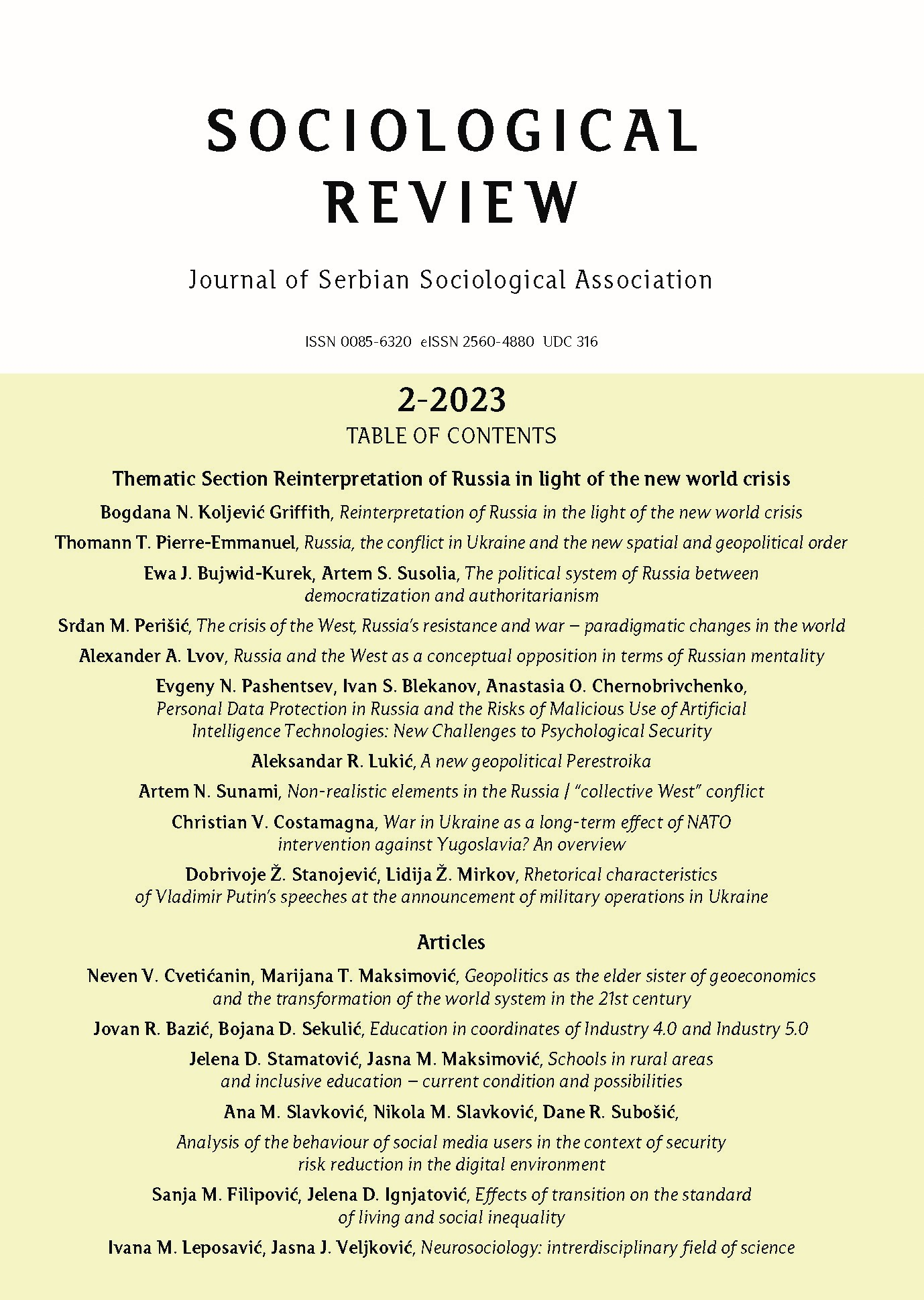A new geopolitical Perestroika
A new geopolitical Perestroika
Author(s): Aleksandar R. LukićSubject(s): Politics / Political Sciences, Social Sciences, Sociology, Social development, Social differentiation, Sociology of Politics, Globalization, Geopolitics
Published by: Српско социолошко друштво
Keywords: perestroika; Russia; Ukraine; nation; hegemony; conflict
Summary/Abstract: After Chernenko’s demise and Gorbachev’s coming to power in 1985, the period known as perestroika began in the Soviet Union. Realignment led to an ostensible end of the Cold War and the disintegration of the Soviet Union, thanks to Yeltsin’s declaration of sovereignty of the Russian Soviet Federative Socialist Republic (RSFSR). As a consequence, former Soviet socialist republics, including Ukraine, became independent states. The United States of America declared victory in the Cold War and a new world order was established with the United States as the great hegemon. In this paper, our aim is to show that the ongoing conflict in the territory of Ukraine did not start either in 2022 or in 2014 (when the conflict became armed). Instead, the conflict was kick-started with the independent state of Ukraine being established in 1991, on historically Russian lands, the purpose of this exercise being to create a new Ukrainian nation. The thirty-year history of the Ukrainian state bears witness to its non-Russian and anti-Russian character, as well as to the undisguised influence of the United States of America, which was particularly evident in the so-called colour revolutions and the armed coup of 2014, which led to the overthrow of the legally elected president of this country, Viktor Yanukovych. Russian intervention in 2022, which has a global geopolitical character, shows that a new perestroika is in full play. Denazification and demilitarisation of Ukraine, declared as the main goals of the Russian Federation, are the fundamental measures of the new perestroika. If the Russian Federation succeeds in this endeavour, this would undoubtedly mark the end of U.S. hegemony, while a new multicentric world would be created. If Russian intervention turns out to be a failure, U.S. hegemony will be reconfirmed so that the interests of the Russian Federation would most likely be faced with a threat of further disintegration. Thus, this is not primarily a conflict between Russia and Ukraine, but rather a decisive battle between Russia and the collective West led by the United States. This is the reason why the West is putting in a strenuous effort, and suffering substantial economic damage, to win this war. It defends Ukraine for its own sake, not for the sake of Ukraine itself. Not by their own choice, Ukrainians are in a tragic position in which their nation is used for the achievement of Western interests.
Journal: Социолошки преглед
- Issue Year: 57/2023
- Issue No: 2
- Page Range: 491-518
- Page Count: 28
- Language: English, Serbian

